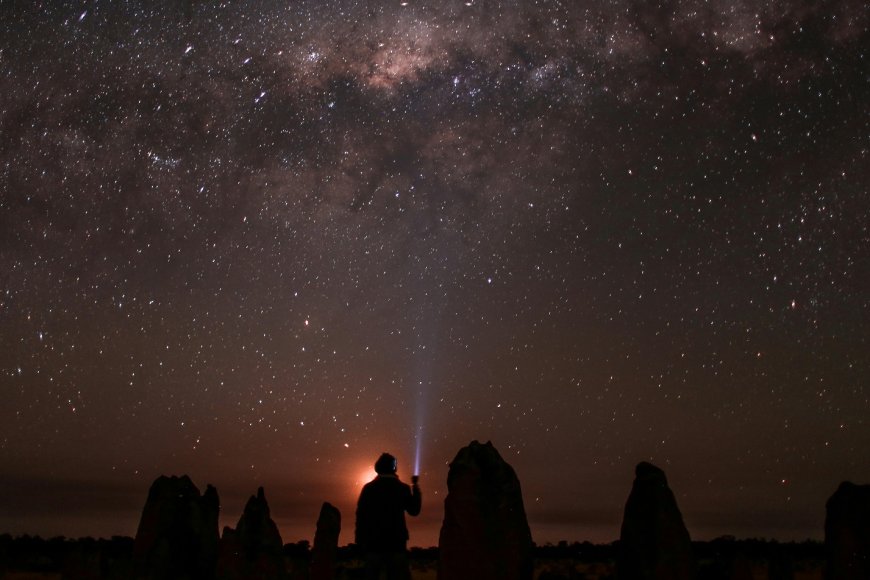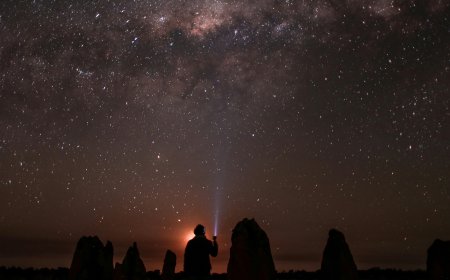The Next Frontier for Luxury Travel in 2025

Within the always-changing realm of luxury travel, space tourism is becoming the most aspirational and remarkable frontier. Once in the domain of science fiction, what is now a physical reality available to wealthy visitors to personally explore the cosmos? Space tourism is poised to reinvent luxury travel with technological developments, large private sector expenditures, and a growing taste for unusual experiences.
The Dawn of Space Tourism
The idea of space tourism is not fresh. Its origins are in 2001 when American engineer and businessman Dennis Tito paid the first private person for a journey to space. A turning point in space travel history, Tito's eight-day stay on the International Space Station (ISS) enabled by a Russian Soyuz spacecraft His trip showed how private businesses may penetrate the market using space exploration beyond government-funded projects.
Ever thereafter, several benchmarks have been reached. Following Tito's lead, businessmen like Mark Shuttleworth and Gregory Olsen demonstrated even more the feasibility of commercial space travel. Early adopters piqued public interest and motivated businesses such as SpaceX, Virgin Galactic, and Blue Origin to create creative ideas for increasing access to space travel.
The Convergence of Luxury and Adventure
The best fusion of luxury and adventure is space tourism. Few things match seeing Earth from orbit or floating weightlessly in zero gravity for high-net-worth people looking for exceptional events. Businesses in this growing sector are creating custom experiences meant to appeal to the most discriminating tourists, not only providing trips.
Virgin Galactic offers suborbital flights on its SpaceShipTwo, for example, where guests may experience several minutes of weightlessness and amazing views of Earth from a roughly 50-mile altitude. To improve the whole experience, the firm also provides VIP services and customized astronaut training. Likewise, Blue Origin's New Shepard rocket is among the most easily available choices for future space visitors since it transports people on suborbital adventures with low training requirements.
Looking ahead, orbital hotels will redefine luxury lodging. Businesses like Orbital Assembly Corporation are building rotating space stations with artificial gravity simulation and entertainment and fine dining capabilities. These futuristic hotels offer an otherworldly vacation experience together with unmatched views of Earth from space.
Key Players Driving Innovation
The fast expansion of space tourism can be mostly ascribed to innovative businesses substantially funding research and development. Leading with its reusable rocket technology is SpaceX, run under Elon Musk. Through its Crew Dragon spacecraft, the business provides orbital trips; it also has grandiose aspirations for lunar missions including tourist flybys around the Moon.
In this field also trailblazers are Virgin Galactic and Blue Origin. Virgin Galactic stresses suborbital flights with a luxurious touch, whereas Blue Origin stresses access with its reusable rockets. Both businesses want to raise flight frequencies in 2025 and beyond, so normalizing space tourism.
By building private space stations, rising players like Axiom Space are stretching limits even farther. Axiom's commercial station, set to open in 2026, will provide panoramic views of Earth and private astronaut-tailored living quarters. This endeavor emphasizes the increasing need for unique experiences combining modern technology with tailored service.
Challenges Facing Space Tourism
Space tourism has various obstacles that can impede its expansion even with its promise. A big obstacle is cost. Ticket costs today range from hundreds of thousands to millions of dollars, therefore restricting access to just the richest people. Though major financial hurdles still exist, businesses are striving to lower prices using creative ideas including reusable spacecraft.
Another crucial issue is safety. Given the inherent dangers involved in space travel, thorough testing and following international rules are vital. Businesses negotiating complicated licensing procedures must follow treaties such as the Outer Space Treaty of 1967. Environmental sustainability is also growingly important since rocket launches add to carbon emissions.
Furthermore presenting logistical difficulties for the sector is infrastructural development. Building orbital housing, training facilities, and launch platforms calls for an enormous financial commitment. But when rivalry among important entities gets more fierce, technological developments and strategic alliances help to progressively remove these challenges.
The Future of Luxury Travel in Space
Looking ahead, space tourism is going to become a pillar of luxury travel as well. Experts see notable expansion in this sector by 2030 as space flight becomes safer and more reasonably priced thanks to technology developments. While longer orbital trips may entail stays on private stations or even lunar excursions, suborbital flights will probably become more common and easily available.
Furthermore very important for determining the course of the sector will be sustainability. Businesses like Space Perspective are already looking at environmentally friendly substitutes such as high-altitude balloon tours with panoramic views of Earth devoid of a noticeable carbon footprint. These programs fit more general patterns in environmentally friendly luxury travel.
Furthermore, trends in experienced travel imply that demand for unusual experiences will just grow. Space tourism presents an unmatched chance for wealthy visitors looking for once-in-a-lifetime adventures to explore unexplored ground while enjoying world-class facilities.
Conclusion
Space tourism is an evolving reality combining modern technologies with unmatched luxury, not a far-off fantasy. From suborbital flights giving weightlessness to orbital hotels giving amazing views of Earth, this new frontier promises to transform experiences for anyone ready to travel outside our globe.
Although safety and expense continue to be major hurdles, constant industry innovation by companies such as SpaceX, Virgin Galactic, and Blue Origin is gradually overcoming these limits. Space tourism is destined to become more accessible over time as infrastructure develops and competition intensifies.
It is currently only a domain reserved for high-net-worth people looking for exceptional experiences. One thing is clear, though, as humans keep exploring the cosmos: space tourism marks not only the next phase in luxury travel but also a daring move toward altering our perception of our planet.
What's Your Reaction?
 Like
0
Like
0
 Dislike
0
Dislike
0
 Love
0
Love
0
 Funny
0
Funny
0
 Angry
0
Angry
0
 Sad
0
Sad
0
 Wow
0
Wow
0































